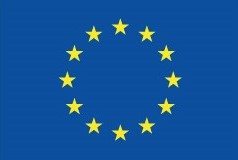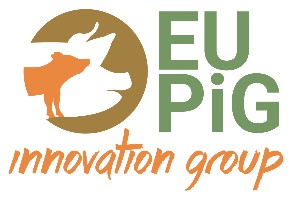- Home
- EU PiG
EU PiG
EU PiG aims to raise the competitiveness of the European industry by connecting producers and sharing tried and tested best practice and innovations.
How does EU PiG work?
EU PiG shares best practice on four key industry themes:
- Health management
- Precision production
- Animal welfare
- Meat quality
Best practice is identified via the EU PiG Grand Prix contest.
Learn more about what EU PiG is
Winning best practice
Dutch farmer Kees van der Meijden has achieved the enviable goal of reducing antibiotic use to almost zero.
Find out how they drastically reduced antibiotic use
The impact and legacy of EU PiG
Over the past four years, the EU PiG Innovation Group (EU PiG) has been helping pig producers across Europe find and share tried-and-tested best practice with fellow producers.

About
What is EU PiG?
 EU PiG
EU PiG
Meat quality
The development of premium quality products by improving characteristics including taste, nutritional value, texture, appearance and yield of pig meat.
Aims of the project
The EU PiG Innovation Group (EU PiG) aimed to help pig producers find tried-and-tested best practice from fellow producers across Europe, sharing all new knowledge in one place, online – funded by the European Horizon 2020 programme. The project ended on 31 October 2020.
The project closed with a webinar about the impact and legacy of the programme. From African swine fever to the rise of flexitarian consumers, the increase in environmental awareness, to increased pressures of high animal welfare – the industry is under continued pressure to change and thrive. Members of the EU PiG consortium demonstrated the significant impact the project’s best practices have had on the EU Pork industry today.
Each country has its own Regional Pig Innovation Group (RPIG), providing the first point of contact, linking pig producers and other experts to identify emerging issues for EU PiG and to share knowledge and best practice:
RPiG: Andrea Ladinig
Birth management in loose farrowing systems
RPiG: Laurens Vandelannoote
- Different feeds as zinc oxide alternatives
- Cross-company approach to PRRS
- Olive oil as fat source for pigs
- Reducing ammonia emissions by separating faeces and urine
RPiG: Claus Hansen
- Clean and accessible water
- Routine weighing for accurate feeding
- Heart pig
- From pig data to big data
RPiG: Fabien Verliat
- Doors for familiarisation between piglets
- Expression of the product: Union of local breed, land and men
- Implementing KALINAT approach to fully promote the hyperprolificacy of sows
RPiG: Wiebke von Seggern
Male fatteners without boar taint
RPiG: Ciarán Carroll
- Adoption of biosecurity tool
- Community management for pig farming
- Use of slaughter data to develop dashboard system to improve pig herd health
- 5S Lean Programme to improve work efficiency
RPiG: Jos Peerlings
- Reduction of antimicrobial medication
- Easy weighing of pigs for slaughter
- Daily manure removal to reduce emissions
- Reducing pig mortality through a high standard of care
- Fermenting liquid feed, an alternative to zinc oxide
- Create awareness through company tours and the sale of unique Berkhout meat with a story
- High-pressure fogging
RPiG: Monika Gębska
- Entire male production
- Novelty in enrichment material
- Pig temperature app for early disease detection
- DrySyst: Truck dry disinfection
RPiG: Ben Williams
Best practice themes
EU PiG had four key themes, identified as the main focus areas for the EU pig industry:
Health management
Meat quality
Animal welfare
Precision production
Contact
For more information contact EUPig@ahdb.org.uk
Copyright and disclaimer
Copyright © EU PiG
Reuse is authorised, provided the source is acknowledged. The general principle of reuse can be subject to conditions which may be specified in individual copyright notices. Therefore, users are advised to refer to the copyright notices on individual websites maintained under individual documents. Reuse is not applicable to documents subject to intellectual property rights of third parties.
This website contains information, and the software and media on which it is operated or contained, (individually and collectively the “Information”) which is made available by EU PiG (all partner organisations undertaking the project). Our goal is to keep this information timely and accurate. If errors are brought to our attention, we will try to correct them.
However, EU PiG accepts no responsibility or liability whatsoever with regard to the material on this site. This material is:
- Information of a general nature only which is not intended to address the specific circumstances of any particular individual or entity;
- Not necessarily comprehensive, complete, accurate or up to date;
- Sometimes linked to external sites over which EU PiG has no control and for which EU PiG assumes no responsibility;
- Not professional or legal advice (if you need specific advice, you should always consult a suitably qualified professional).
This website only reflects the author’s view and the European Commission is not responsible for any use that may be made of the information it contains.
Please note that it cannot be guaranteed that a document available online exactly reproduces an officially adopted text, so that only European Union legislation published in the paper editions of the Official Journal of the European Communities is deemed authentic. It is our goal to minimise disruption caused by technical errors. However, some data or information on our site may have been created or structured in files or formats that are not error-free and we cannot guarantee that our service will not be interrupted or otherwise affected by such problems. EU PiG accepts no responsibility with regard to such problems, or the consequences thereof, incurred as a result of using this site or any linked external sites. This disclaimer is not intended to contravene any requirements laid down in applicable national law nor to exclude liability for matters that may not be excluded under that law.
This project has received funding from the European Union`s Horizon 2020 research and innovation programme under grant agreement No 727933.
 Government logo
Government logo







